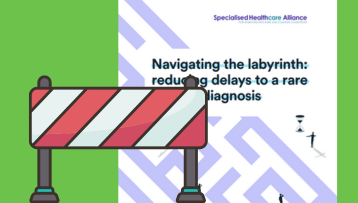Nine out of every 10 people living with Tuberous Sclerosis Complex (TSC) develop TSC-Associated Neuropsychiatric Disorders (TAND) at some point in their lives. This year, the TSA has focused it’s research funding on professionals undertaking research fully focused on TAND.
What the TSA wanted to achieve in this year’s research funding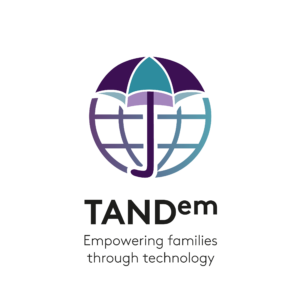
TAND can have a serious impact on family life, with the number one request from individuals and families affected by TSC being for advice and support to help them manage TAND-related symptoms. All research considered for funding by the TSA in 2022 (called a ‘grant round’) were submitted by researchers from around the world that would address priority research areas identified in a recent review of all TAND research to date.
The funding we’re providing in 2022 is called ‘seed grants’ – funding that helps researchers to develop new and original ideas that will go on to form part of larger grant applications in the future. Seed grants support activities necessary for further work, and also encourage collaboration.
Our review of existing TAND research identified a number of key research gaps:
- More research needed from low/middle-income countries
- More research needed on TAND in older adults
- More qualitative research needed
- An increase in research needed on the scholastic (education) and psychosocial level
- More research needed on areas of overactive/impulsive, eat/sleep, neuropsychological and scholastic (education)
- Non-pharmacological intervention research needed, including caregiver skills training and caregiver wellness programmes
- Research that utilises technologies to increase accessibility of support to families
In order to ensure the most direct benefit to people affected by TSC, our call for researchers to submit applications specifically encouraged small projects that would be complementary to the TANDem project – a project already co-funded by the TSA.
The process of deciding what research to fund
We were delighted to receive a high number of applications from six different countries! The review panel, made up of international TSC-researchers, doctors, and patient representatives, met virtually to discuss the applications and rank each project in terms of scientific merit, research expertise and potential impact of the project results on the TAND-TSC community.
It was a very competitive process, with each proposal highly relevant to the TANDem project and each addressing one or more of the key research gaps identified in the scoping review. It was encouraging to see that each application had been co-designed with people affected by TSC and their families from around the world, and each one planned to involve patients and their families in every step of the research project, from design to dissemination of research results. As a result, it was decided that those with unsuccessful applications would be invited to connect with members of the TAND consortium, who were keen to discuss other ways in which they could potentially work together.
The TSA’s research team informed each applicant of the outcome and finalised contracts for each successful project.
Congratulations to our three winners!
A huge congratulations to our three winners: Dr Liezl Schlebusch (University of Cape Town), Ms Shoba Srivastava (University of Cape Town) and Dr Stacey Bissell (University of Birmingham).
We are excited to bring you the full details of each successful project, and to introduce you to some new and not-so-new faces in international TSC research.
Dr Liezl Schlebusch, University of Cape Town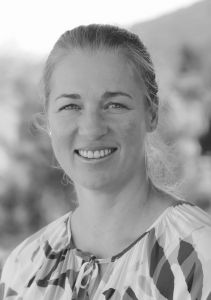 – “Well-Beans for Caregivers Programme”
– “Well-Beans for Caregivers Programme”
This is an exciting pilot study, focused on an online wellbeing programme for caregivers of children with TSC living in either South Africa or the UK. The team want to find out if this draft programme is feasible and good for caregivers, and whether it can positively support the wellbeing of these caregivers.
The research team at the Centre for Autism Research in Africa (University of Cape Town) has adapted a three-session caregiver well-being programme developed by the World Health Organization for caregivers of children with developmental disabilities (WHO Caregiver Skills Training Programme). The wellbeing programme is based on Acceptance and Commitment Therapy (ACT). ACT has shown promise in improving the well-being of caregivers of children with various disabilities and chronic conditions.
The TSA previously held a virtual session all about ACT, which you can find on the TSA Video Hub.
The adapted programme is called the ‘Well-Beans for Caregivers Programme’. The team has already delivered the programme to caregivers of children with various other disabilities in a rural South African town. They found the intervention easy to implement, highly acceptable to caregivers and showed promising impacts on caregivers’ wellbeing.
The team believe this promising programme can also be helpful for caregivers of children with TSC. Their study will ask for input from the UK TSC community and play an essential role in contributing to TSC research from both low/middle-income and high-income countries, focusing on an intervention for caregiver wellness and using technology to increase the accessibility of support to families.
Mrs Shoba Srivastava, University of Cape Town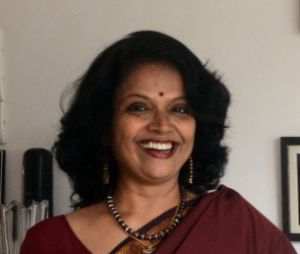 – “Understanding and supporting families with TSC-Associated Neuropsychiatric Disorders (TAND) in India”
– “Understanding and supporting families with TSC-Associated Neuropsychiatric Disorders (TAND) in India”
Shoba is a parent of an adult who lives with TSC and TAND challenges. This PhD studentship will help Shoba start to collect systematic data on TSC family needs in India, and potential tools to help meet these needs. Shoba has a Master’s in Education and was one of the members of TSC Alliance of India and one of the founders of an autism charity in India, called SOPAN. This PhD studentship will help Shoba start to collect systematic data on TSC family needs and potential tools to help meet those needs in an Indian context.
India is a country with a very large population of over 1.4 billion people. It has 29 states, seven Union territories and 22 languages. This complexity means that the number of people affected by TSC in India is currently unknown. However, with an expected level of one TSC diagnosis in every 6,000 people, it’s expected that a very high number of people in India are affected by TSC.
A formal group setup by TSC families in India, called TSC Alliance India, was created in 2018 and is run by a group of volunteers. A recent research review by them found that only nine papers had ever been published about TAND in India, all of which were individual case reports. It is therefore clear that there is a very significant need for research on TAND in India that could tell us what the actual needs of families and people who live with TSC are, and to work on actions that can start to meet those needs.
The PhD project aims to examine three things. Firstly, the research will ask families who live with TSC and the clinicians who support them: What they know about TAND, what their TAND needs are, and what their priorities would be to support people with TSC and TAND in India. Secondly, it will examine how useful the self-completed TAND checklist and the TAND Toolkit App are for families in India. Thirdly, the team will run a short caregiver wellbeing programme (designed for caregivers of children with developmental disabilities, but not specifically for TSC), to see how useful and relevant it may be to TSC families in India.
This PhD project will be able to provide a good foundation for future TAND research and service developments in India.
Dr Stacey Bissell, University of Birmingham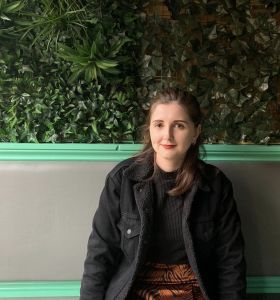 – “Exploring Sleep experiences in people with tuberos sclerosis complex (E-Slept)”
– “Exploring Sleep experiences in people with tuberos sclerosis complex (E-Slept)”
Dr Stacey Bissell is no stranger to the TSC community, with the TSA originally funding Stacey’s PhD studentship with back in 2014. Stacey has since led the e-SNORE project alongside Dr Caroline Richards at the University of Birmingham. An up-and-coming leader in the field of sleep and TSC and other areas of TSC, Stacey works closely with the TANDem project team. Stacey’s new project aims to document caregiver experiences of managing sleep difficulties in the TSC individual they care for in the UK.
Sleep difficulties are outlined within the behavioural level of TSC-associated neuropsychiatric disorders (TAND) as an area of clinical concern (e.g., night waking, daytime sleepiness). However, lived experiences of sleep management concerns and access to support (e.g., nocturnal seizures, access to respite, school experiences of daytime napping) are not currently documented within the TSC research literature.
With a view towards targeted assessment and behavioural sleep management in TSC, this project will capture national and international caregiver experiences of poor sleep. Through online interviews with caregivers of children and adults living with TSC, this project will determine which strategies are currently used by families and which behavioural and medical interventions have been trialled successfully. First-hand accounts will also highlight potential barriers to effective sleep interventions faced by caregivers accessing support within local care authorities.
Overall, this project aims to identify clinical concerns relating to poor sleep from the caregiver perspective, in an effort to inform social care provision and support for sleep intervention people living with TSC in the UK.
The TSA is looking forward to following and assisting our three awarded research projects throughout their journey, and will be sure to regularly update the TSC community on their progress!
Make a one off or regular donation
£10 Can allow us to send a welcome pack to a family who has just received a life-changing TSC diagnosis, ensuring that they do not go through this time alone.
£25 Can help us develop materials that are included in our support services, flagship events or campaigns.
£50 Can provide laboratory equipment for a day’s research into the causes, symptoms, management or treatment of TSC.
To provide help for today and a cure for tomorrow








